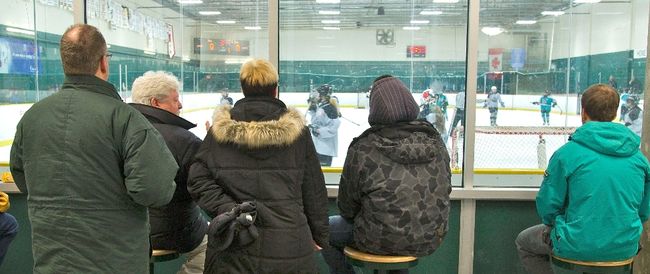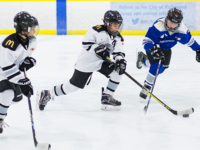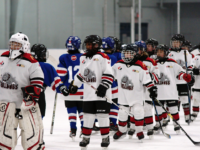So, your child has expressed interest in playing hockey. Whether they watch professional hockey and want to be just like the pros, or all their friends are trying out for the team, it’s time for them to give hockey a go. No matter the reason, your child is about to become a first-time hockey player, and you are about to become a first-time hockey parent.
The first thing to know about being a good hockey parent is that it’s completely doable. Here are a few things to keep in mind.
Is your Child Prepared for a Commitment?
While your child may say they’re interested in playing hockey now, it’s important to gauge how passionate they are for the sport. Playing a sport for an entire season is a big commitment for both you and your child, and as far as cost goes, it’s not cheap! So, make sure they truly understand how big a commitment it is and that they’re willing to see it through.
By the same token, your child may want to quit at any point throughout the season. Maybe they’ve become bored, gotten frustrated at having to lug all their gear around, or are tired of losing games. Whatever the reason, it’s important to listen and understand. Try to convince them to see out the rest of their season, with some encouragement and assistance if needed.
Be Smart About Their Gear
A lot of your attention as a first-time hockey parent is going to be directed to your child’s gear. You need to make sure they have everything, it all works, and it doesn’t reek, among other things. Below are 5 important considerations involving your child’s hockey gear:
-
Make sure they have all the gear they need
There are many different pieces of equipment your child needs before they can start playing hockey safely. Skates, a helmet, gloves, and a mouth guard are just a few examples. Make sure you’ve done your homework on what your child will need to bring to their games and practices. Be sure you have everything before the season starts.
-
Inspect their gear regularly
Over time, hockey gear can become defective. It can wear out, stretch, tear, crack, and a whole number of other things. If you inspect your child’s equipment every so often you can be sure to catch something that needs to be replaced. Gear will also be outgrown eventually and sometimes quickly, so keep your eyes on that as well.
-
Keep their gear clean
Hockey gear can also start to stink. A lot. Allowing the gear to ‘air out’ following games & practices, and giving their gear a regular cleaning will keep your child and everyone around them happy when they’re using it.
-
Label everything
It’s all too common for kids on the same hockey team to get their gear mixed up. The change room is usually a frantic mess both before and after games, which can sometimes result in gear being accidentally swapped. Labeling everything will let you catch whenever equipment gets switched, so you can ensure your child stays with the same gear for the whole season.
-
Dress them before you leave
Another potential downfall for a new hockey parent is to underestimate the time it will take for their child to get all their gear on. You’ll arrive at the rink ten minutes before practice, start getting them ready, and next thing you know they’ll be twenty minutes late stepping on the ice. Dressing your (young) child in some of their equipment before practices and games, at least for a little while, can help avoid this problem.
Arrive on Time and At the Right Place
Make sure to plan so that you have more than enough time to get your child ready and travel to the arena. It’s always better to be early and have a few minutes to spare before a hockey practice or game starts. Most coaches will provide a pre-set time to arrive by in case anything needs to be addressed. By the same token, be sure you’re heading to the correct rink. Check both the address and the name of the rink before you set out the first few times to avoid the always embarrassing wrong-destination.
Get to Know People
Being a new member of a minor hockey association is a fantastic opportunity to make friends. There will almost always be as many parents as there are players at each practice or game. It’s never a bad idea to try and involve yourself in conversation and events when you can; it may yield some surprising and helpful connections for the future.
At first, being a new hockey parent may seem like a lot of work. But if you do your best to follow the tips mentioned above, those good practices will soon become habitual. Then you’ll be able to worry less about all the things you have to do to support your child’s new hockey dreams and focus on enjoying seeing them try out a new sport.






